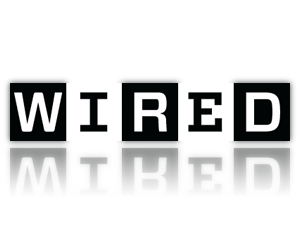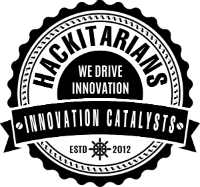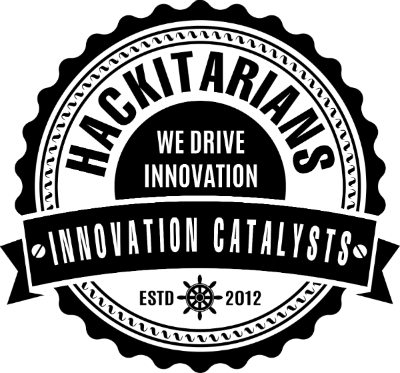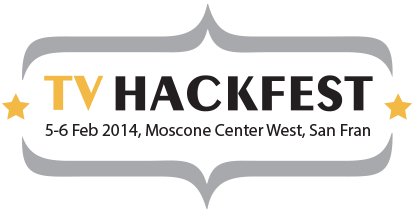The Project
The TV Hackfest was held at Moscone Center in the heart of San Francisco as part of Apps World event. We had to work hard to ensure we had enough developers as it was mid-week and not close to Silicon Valley. This event took place in February 2014.
The Pitch
 Richard Kastelein wrote an article at Wired.com to drive the event forward. See here.
Richard Kastelein wrote an article at Wired.com to drive the event forward. See here.
Are Ethical Hackers the Alchemists of Our Time… The Masters of the Binary Evolution?
FAR TOO MANY people still envision hackers as evil. The name hacker itself to most conjures up images of some basement-dwelling, pimply geek who gets off on trying to hack the Pentagon or MI5… or even worse, messes with ordinary peoples’ computers making misery of our lives as we battle spam, malware, Trojans and other forms of time-wasting and spending money hand over fist getting things back to normal.
But actually, as the English lexicon evolves the idea of hacking and hackers is changing.
Ethical Hackers are now kind of becoming the alchemists of the 21st century — speaking the language of code — that drives so much of our lives this millennium. The coders, the developers, the designers, the user experience experts and even the digital entrepreneurs are a new breed of shaman that are redesigning how we communicate and interact in our brave new world.
‘Hackers’ speak many languages, but in principle what makes them alchemists — is they all speak the mysterious language of “code.” Forget Esperanto… code is the lingo that essentially is binding us all into one universal binary language.
The playground of the new generation of hackers is what is called the Hackathon — a portmanteau of “Hack” and “Marathon.” And in its essence it’s about Rapid Prototyping, Cooperation and Co-Creation.
And now, we are solving medical problems, civic issues, makings sense of massive amounts of data we are building via our digital universe, and reconnecting our world in the Internet of Things via hackathons.
Both the White House and the Government of India have recently held hackathons. British Airways just held a hackathon in the air packing a plane full of coders on a flight from San Francisco to London and let them hack away.
Some of the odder hackathons include Meat Hack Day,Comedy Hack Day, and even a Hackathons forTransgender Empowerment.
Hackers are becoming the new elite, the solvers of some of societies largest issues and are cutting apps that are fundamentally changing the way we evolve and live today. Don’t believe me? How often do you check your smart phone?
 According to the Daily Mail in the U.K., the average person checks their mobile phone about 110 times a day (and up to every six seconds in the evening.)
According to the Daily Mail in the U.K., the average person checks their mobile phone about 110 times a day (and up to every six seconds in the evening.)
Mobile Apps, developed largely by “hackers” are influencing lives in a huge way. (Photo, right: Scott Eklund from PonyCode and the Comcast Silicon Valley Innovation Center at San Francisco TV Hackfest 2013.)
That’s perhaps why App Developers make more money than Doctors and Lawyers globally, according to an infographic commissioned by the Application Developers Alliance and designed by infogr8.
Why? They are at the helm of an industry we call the app market which was worth $3.5 billion in 2011, and is expected to grow tenfold to $30.5 billion by 2016.
I have been fortunate enough to participate in this world, founding TV Hackfest in 2012 and running hackathons in both San Francisco and London over the past two years. We started with hacking television. And there’s plenty to hack with Connected TV app stores coming into fruition and what we call Social TV Apps (Second Screen engagement while people watch TV). But we are now considering branching out The Hackfest to other verticals such as music and health… as well as general apps.
So what do we do at a TV Hackathon? We put together creatives (mainly from the Transmedia movement) , developers, coders, designers and entrepreneurs get them to form groups if they are not part of one, get creative, get coding and go on to build cool stuff. We give them Application Programming Interfaces known as APIs, Software Development Kits or SDKs, TV metadata, and loads of video to work with. Usually more than 24-48 hours; sometimes even all nightersfor the hardcore as we did in London in 2012.
Brands, agencies, broadcasters and other suppliers have also been involved as sponsors providing what we call a Brief, which is essentially a challenge to solve a problem or find a creative solution. For a prize.
 So why hack TV? Not just because we can. And there are prizes. Hacking is largely driven by ego in a good way. Like the open source software world where ego is the currency its largely about gravitas around building the coolest thing. And maybe building a startup. (Photo, left: London Hackfest 2012 — Syd Lawrence from wemakeawesomesh.it testing the mind control gear.)
So why hack TV? Not just because we can. And there are prizes. Hacking is largely driven by ego in a good way. Like the open source software world where ego is the currency its largely about gravitas around building the coolest thing. And maybe building a startup. (Photo, left: London Hackfest 2012 — Syd Lawrence from wemakeawesomesh.it testing the mind control gear.)
TV is ripe for change. Forbes says there’s half a trillion dollars up for grabs as the Internet collides with TV. Both print and music have been hit hard by the web, and there’s no reason to think that TV is immune from rapid and enormous change to the current value chain.
The New York Times reported last May that Millennials were leaving TV in droves, and brands were losing their ability to mass reach them en masse as they niche into new forms of entertainment.
“Goldman Sachs found last month that broadcast ratings in the 18-to-49-year-old demographic, the one most coveted by advertisers, fell by 17 percent in the winter months compared with last winter. Goldman Sachs called it ‘the sharpest pace on record.’”
While all current trends indicate that TV and advertising spend are still vital components of the media marketplace, TV viewership does face a number of challenges, including fragmentation, technology-enabled time shifting, and the disruption of media stacking or mobile/tablet multitasking. TV is in trouble. It needs to be hacked.
Developments in technology are impacting TV advertising effectiveness and the dramatic rise of connected mobile devices is leading to an increasingly distracted use of TV. Digital technology has also accelerated ad avoidance through time shifting and on-demand viewing, and has enabled a significant amount of fragmentation due to sheer volume of content and niche.
All these developments work together to degrade the value of TV ads and are deeply affecting the TV industry as scarcity is removed due to IP delivered content. Innovation is what will save the industry and who does not want a developer (hacker) community like Apple, Facebook and Google? Each company basically has 50,000 developers on spec, driving innovation at the speed of light.
Interestingly enough, many in TV don’t, as the walls are still high and tight intellectual property ownership is the core of the business. But building higher walls is not the answer. It’s not going to save the TV industry.
Innovation will. And that’s likely to come from the outside not inside.
Come join us at The Hackfest in San Francisco February 5-6, 2014, which will include both a TV Hackfest and Apps Hackfest and is part of Apps World Exhibition and Conference 2014 at Moscone West in San Francisco.
Richard Kastelein is the founder of TV Hackfest London and San Francisco and publisher of TV Appmarket (both acquired in 2013).
The Winners

Hackfest returned to San Francisco at the beginning of this month for 2 days of hard-core coding with a range of exciting APIs and SDKs to play with. After coding all day at the Moscone Center West on day 1, hackers continued working on their projects at the official networking party and beyond – with some attendees getting only a few hours sleep as they worked on their creations ready for the day 2 presentations.
Our panel of judges, which included experts from Disney, American Airlines,Mitsubishi and 2013 reigning champions, Reincloud, were impressed with all of the submissions and the high quality of entries given the time constraints. Some of the highlights included entries that combined APIs, and brought in other technologies such as augmented reality and Google Glass.
Here’s a list of this year’s winners and their prizes:
Overall TV Hackfest winner:
Learn TV
Overall Apps Hackfest winner:
Monitube
Nexmo brief:
Winners of best use of Nexmo APIs:
Reach Out
Monitube
Winners of best productivity app using the Nexmo API:
Android Back up
Bitcasa brief:
Winner of best ‘Bitcasa it’ app:
Android Back up
NDEV brief:
Winner of best entry for NDEV’s brief:
Reach Out
Enyo:
Winner of best built app with Enyo:
Bet TV
LG:
Winner of best entry for LG brief:
Learn TV
Special mention:
Monitube
Smart TV Alliance:
Winner of best entry to Smart TV Alliance brief:
Up and Down
Alphonso:
Winner of best entry for Alphonso brief:
Like TV
Brightcove
Winners of most innovative use of Zencoder API and most amazing use of video.js:
Reel Reactions
Thumbnail Curve
Monitube
Gracenote
Winners of best response to the Gracenote brief:
TV through the looking glass
Thumbnail Curve
Gracenote Powered 3D
Special mention:
Mad Tags
Zeebox:
Winner of best use of Zeebox APIs:
Madtags
Congratulations to all our winners, we’ll be catching up with them over the next year on their Hackfest experiences and what has happened to their projects since winning. Find out about more about Hackfest and upcoming hackathons here


